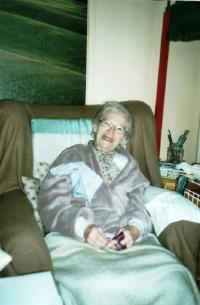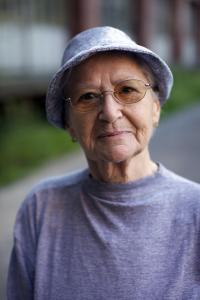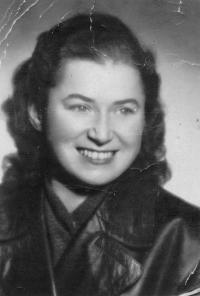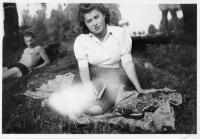Travelling is my love and I travelled even when I lived in a labour camp

Download image
Libuše Audrlická (née Kačerovská) was born in Předměřice nad Labem on 17 February 1924. She is the eldest of three sisters. Her father was a carpenter and her mother was a housewife. The witness was on Totaleinsatz forced labour deployment in the Reich from 1943. She worked at a factory and then in the kitchen of a camp for French POW. She married her sister’s brother-in-law in 1944; he worked in Klodzko Land. She left the camp with him and worked in the local hotel’s kitchen. Then she got pregnant and was permitted to return to her parents. After the war, she completed an evening school to become a shop assistant. She was active in the Forced Labour Association (SNN) in the 1990s. She published her book, My Memories of Forced Labour in Klodzko, in 2008. Telling the stories of three women on forced labour, including Libuše Audrlická, the film The Day After a Long Night premiered on 9 June 2011.



